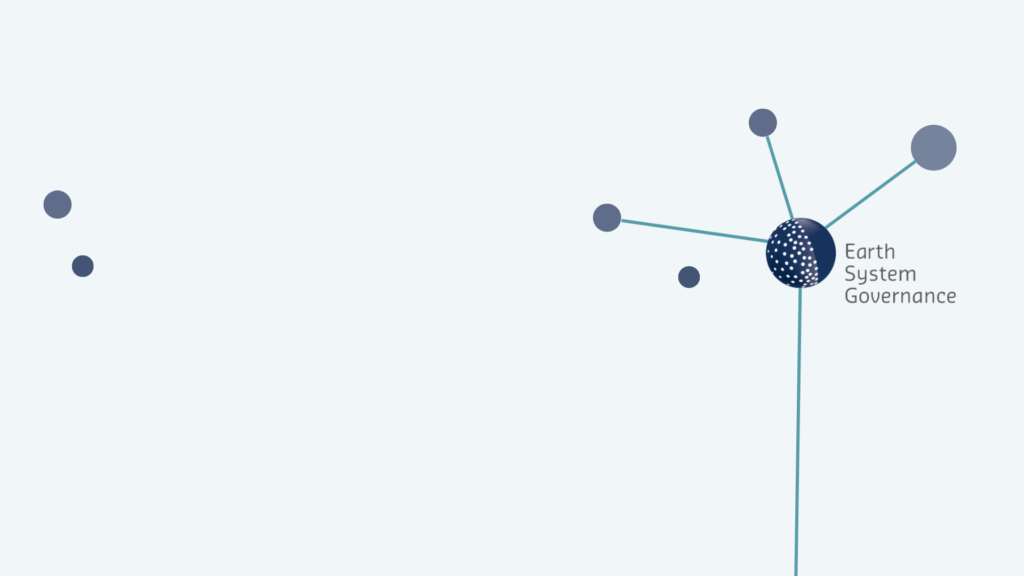CALL FOR PAPERS
For a special section of a leading international journal in environmental science and policy
Edited by Esteve Corbera (University of East Anglia), Heike Schroeder (University of Oxford) and Oliver Springate-Baginski (University of East Anglia)
Supported by the Tyndall Centre for Climate Change Research, the Oxford Centre for Tropical Forests and the Earth System Governance Project
Issue justification
The recent meeting of the UNFCCC held in Copenhagen (COP-15) has left most people with a sense of disappointment, insofar as an agreement about a global action framework with future emission reduction targets and a clear roadmap has not been reached. However, negotiations on some critical aspects made a considerable leap forward, as is the case for the development of a framework for Reducing Emissions from Deforestation and Forest Degradation (REDD). Parties recognised the importance of forest conservation, as well as forest enhancement and sustainable forest management (the so called REDD+) in meeting emission reduction in developing countries. Parties also encouraged developing countries to identify deforestation drivers, estimate emissions and establish national forest monitoring systems, in order to start or continue drafting their REDD strategies (Decision FCCC/ SBSTA/2009/L.19/Add.1). More importantly, perhaps, is the fact that the Copenhagen Accord stressed the importance of increasing funding for REDD+ and suggested to do so through a new Green Climate Fund, which will also support other mitigation and adaptation actions. This context suggests that REDD+ related activities, both at procedural and implementation levels, will continue to expand and capture the attention of policy-makers, NGOs, civil society and academia in forthcoming years. Scholars have so far focused on exploring the methodological challenges for REDD+ (see e.g. Schlamadinger and Bird, 2007, and correspondent Special Issue in Environmental Science and Policy 2007 10(4)), and analysing governance issues which may promote or deter implementation at national and sub-national scales (Angelsen et al., 2009; Corbera et al., 2009). However, there is still a lack of certainty about the implementability of REDD+ strategies in developing countries, which have been supported through the World Bank Forest Carbon Partnership Facility and the UN-REDD Programme over the past two years. Many issues relating to governance remain unresolved. For example, it is not clear how funds would be distributed domestically, how to prevent perverse incentives from emerging and how to protect the indigenous and forest communities whose livelihoods depend on forest. Neither have there been assessments about the negotiating process or current and future REDD finance frameworks, which can shed light on the complexities of forest politics at the UNFCCC level, and country selection and policy priorities when it comes to funding REDD through multilateral organisations, as for the case of adaptation (Klein et al., 2009). During these last two years, a number of projects selling REDD+ credits in voluntary carbon markets have been envisaged, but sound analysis of the benefits and risks of trading carbon through forest conservation is also lacking.
Objectives and eligible contributions
The Special Section aims to contribute to existing debates on REDD+ effectiveness and advance the understanding of how such a framework becomes implemented in developing countries and impacts upon their forest managers. It also aims to respond to a call for research on Earth System Governance, particularly questions of architecture, agency, accountability, and allocation and access (see Biermann et al. 2009), and to provide timely information to scholars, policy-makers and NGOs working on forestry and climate change mitigation. Papers should be academically rigorous and theoretically grounded, and address issues which appear critical for the emerging governance of REDD+, including procedural and implementation issues at different administrative levels. Priority will be given to papers exploring one or more of the following:
– International negotiation processes relating to REDD / REDD+. The development of financial and incentive-sharing mechanisms, at international and national levels,to support REDD+ and their early opportunities and challenges;
– The implications of REDD+ for global carbon accounting and, in particular, for international and domestic leakage;
– The design and implementation of REDD+ strategies, particularly through the multilateral programmes of the World Bank and UN-REDD, looking specifically at political negotiations within countries, participation, and the likely effectiveness of the policies/actions being designed;
– The interplay between REDD+ strategies and forest tenure issues at national or local levels, to explore how changes in property rights affect people’s access to resources and existing management capacities;
– The implementation of pilot REDD projects in voluntary carbon markets and their outcomes to date,in order to highlight the benefits and risks of trading carbon through biodiversity conservation;
– Institutional design lessons from other international mechanisms.
Timeline and paper selection
This Call for Papers will be open from 1 February 2010 (12 pm GMT) to 28 February 2010 (12 pm GMT). The Call will be circulated and advertised widely. Interested applicants should send a long abstract of their paper (up to 1,000 words), or their draft paper if available, to all three editors at e.corbera@uea.ac.uk, heike.schroeder@ouce.ox.ac.uk and oliver.springate@uea.ac.uk.
Applicants must be committed to submit a full paper (up to 8,000 words) by 30 April 2010. The paper should not have been submitted elsewhere before. 4 – 6 papers will be chosen among all the received contributions according to quality and relevance. A geographical balance of contributors and case studies will also be pursued in the selection process. Selected papers for the Section will be submitted for peer-review to a leading international journal in environmental science and policy in May 2010.
References
– Angelsen, A. (ed.). 2008. Moving Ahead with REDD: Issues, Options and Implications. Bogor: Centre for International Forestry Research.
– Biermann, F., et al. 2009. Earth System Governance: People, Places, and the Planet. Science and Implementation Plan of the Earth System Governance Project. Earth System Governance Report 1, IHDP Report 20. Bonn, IHDP.
– Corbera, E., M. Estrada and K. Brown, 2009. Reducing greenhouse gas emissions from deforestation in developing countries: Revisiting the assumptions. Climatic Change. doi: 10.1007/s10584-009-9773-1.
– Klein, R.J.T. and A. Möhner. 2009. Governance limits to effective global financial support for adaptation. In: W.N.
– Adger, I. Lorenzoni, K. O’Brien (eds.) Adapting to Climate Change. Thresholds, Values, Governance. Cambridge University Press, Cambridge. p. 465-475.
– Schlamadinger, B. and N. Bird. 2007. Editorial. Special Issue on Options for including agriculture and forestry activities in a post-2012 international climate agreement. Environmental Science and Policy, 10(4): 269-270.


